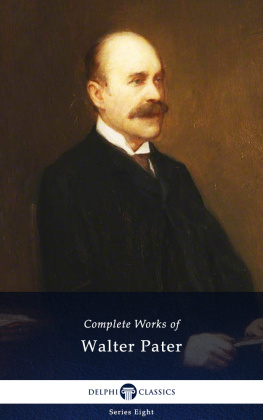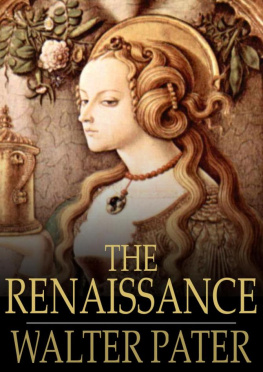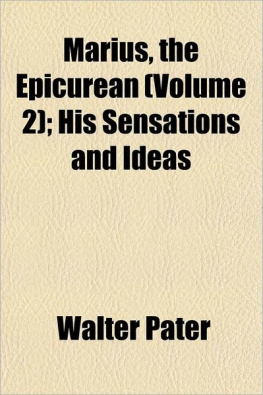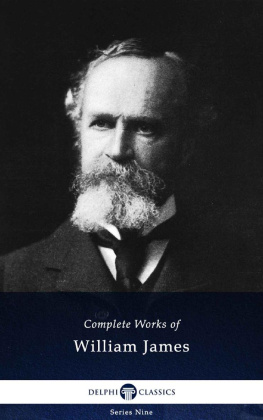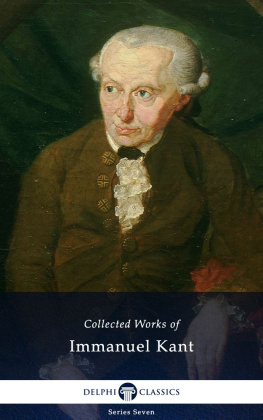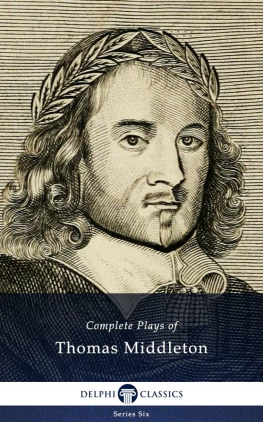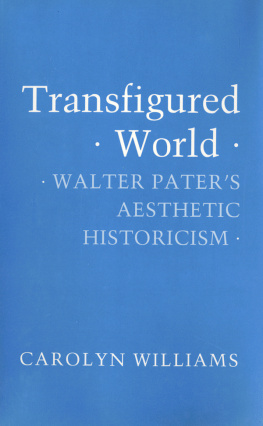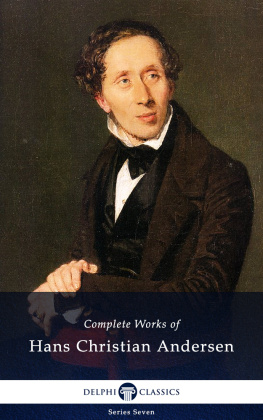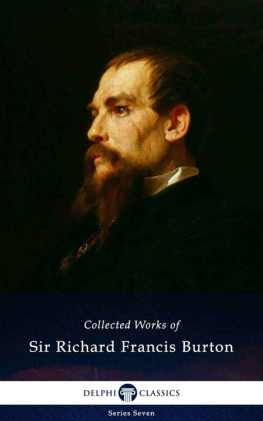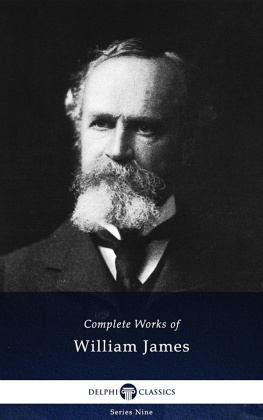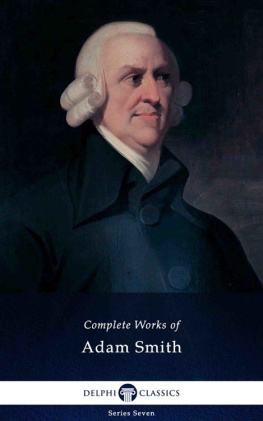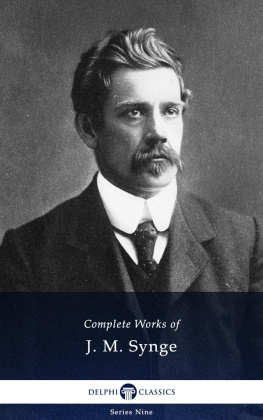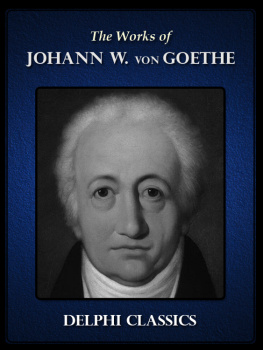
The Complete Works of
WALTER PATER
(1839-1894)

Contents

Delphi Classics 2017
Version 1

The Complete Works of
WALTER PATER

By Delphi Classics, 2017
COPYRIGHT
Complete Works of Walter Pater
First published in the United Kingdom in 2017 by Delphi Classics.
Delphi Classics, 2017.
All rights reserved. No part of this publication may be reproduced, stored in a retrieval system, or transmitted, in any form or by any means, without the prior permission in writing of the publisher, nor be otherwise circulated in any form other than that in which it is published.
ISBN: 978 1 78656 093 3
Delphi Classics
is an imprint of
Delphi Publishing Ltd
Hastings, East Sussex
United Kingdom
Contact: sales@delphiclassics.com
www.delphiclassics.com
The Fiction

Shadwell and the Thames riverfront, East London Paters birthplace

Shadwell in the nineteenth century Paters father Richard Glode Pater was a physician that had moved his family to an impoverished borough of London to practice medicine among the poor.
MARIUS THE EPICUREAN

HIS SENSATIONS AND IDEAS
Paters only complete full-length piece of fiction was first published in 1885 and concerns events set in AD 161-177 in the Rome of the Antonines. Marius the Epicurean explores the intellectual development of its protagonist, a young Roman of integrity, in his pursuit of a congenial religion or philosophy at a time of change and uncertainty, which Pater likens to his own era. Narrated in third-person, the novel features various interpolated discourses, ranging from adaptations of classical and early Christian writings to Marius diary and authorial comment.
The novel introduces Marius as a sensitive only child of a patrician family, growing up near Luna in rural Etruria. He is interested in the traditions and rituals of the ancestral religion of the Lares and intrigued following a boyhood visit to a sanctuary of Aesculapius. His childhood ends with the death of his mother, having lost his father from a very young age, just like the author. Marius shortly departs for boarding school in Pisae, where he falls under the influence of a brilliant, hedonistic older boy, Flavianus, who awakens in him a love of literature. Together they read with delight the story of Cupid and Psyche in Apuleius novel The Golden Ass . Flavianus falls ill during the Festival of Isis and Marius tends him during his long death-agony, bringing the novel to the end of its first part.
Grown to manhood, Marius embraces the philosophy of the flux of Heraclitus and the Epicureanism of Aristippus. He journeys to Rome in AD 166, encountering by chance on the way a blithesome young knight, Cornelius, who becomes a trusted friend. Marius explores Rome in awe; due to his great attainments in Greek letters, he is soon appointed amanuensis to the Emperor Marcus Aurelius. Aurelius Meditations on Stoicism , the works of Plato and the public lectures of the rhetorician Fronto open Marius eyes to the narrowness of Epicureanism. The Emperors indifference, however, to the cruelty to animals in the amphitheatre, and later to the torments inflicted on people there, causes Marius to question the values of Stoicism, leaving him disillusioned with Rome.
The novel explores a theme central to Paters thinking and already examined in his earlier Imaginary Portrait The Child in the House (1878), stressing the importance to the adult personality of formative childhood experiences. Conscious of his growing influence and aware that the Conclusion to his Studies in the History of the Renaissance (1873) had been misconstrued by some critics as amoral, Pater set about clarifying his published ideas. As he states in the third edition of The Renaissance (1888), Marius the Epicurean deals more fully with thoughts suggested by the Conclusion. In particular Pater is careful in the novel to distinguish between hedonism, as it is usually understood, and Marius cerebral, ascetic version of Epicureanism. The protagonists quest exemplifies Paters belief that we should be for ever testing new opinions, never acquiescing in a facile orthodoxy. Marius the Epicurean celebrates Paters ideal of the aesthetic life, based on sensation and perception, further developing his theory of the stimulating effect of the pursuit of sensation and insight as an ideal in itself.
The novel was favourably reviewed and sold well, whilst a second edition with minor revisions was released in the same year. In an early review in Macmillans Magazine the novelist Mary Ward praised the great psychological interest of the novel, but identified as a weakness its tendency to depict Christianity from an aesthetic viewpoint, rather than presenting it as lifes ultimate truth and reality. T. S. Eliot, with his Stoic and Christian sympathies, concurred in his influential 1930 essay.

The first editions title page

Walter Pater by W.S. Wright, close to the time of publishing his only novel
CONTENTS

The Roman Empire in AD 125

Bust of Marcus Aurelius, Palazzo Nuovo, Rome
PART THE FIRST
CHAPTER I: THE RELIGION OF NUMA
As, in the triumph of Christianity, the old religion lingered latest in the country, and died out at last as but paganism the religion of the villagers, before the advance of the Christian Church; so, in an earlier century, it was in places remote from town-life that the older and purer forms of paganism itself had survived the longest. While, in Rome, new religions had arisen with bewildering complexity around the dying old one, the earlier and simpler patriarchal religion, the religion of Numa, as people loved to fancy, lingered on with little change amid the pastoral life, out of the habits and sentiment of which so much of it had grown. Glimpses of such a survival we may catch below the merely artificial attitudes of Latin pastoral poetry; in Tibullus especially, who has preserved for us many poetic details of old Roman religious usage.
Next page
